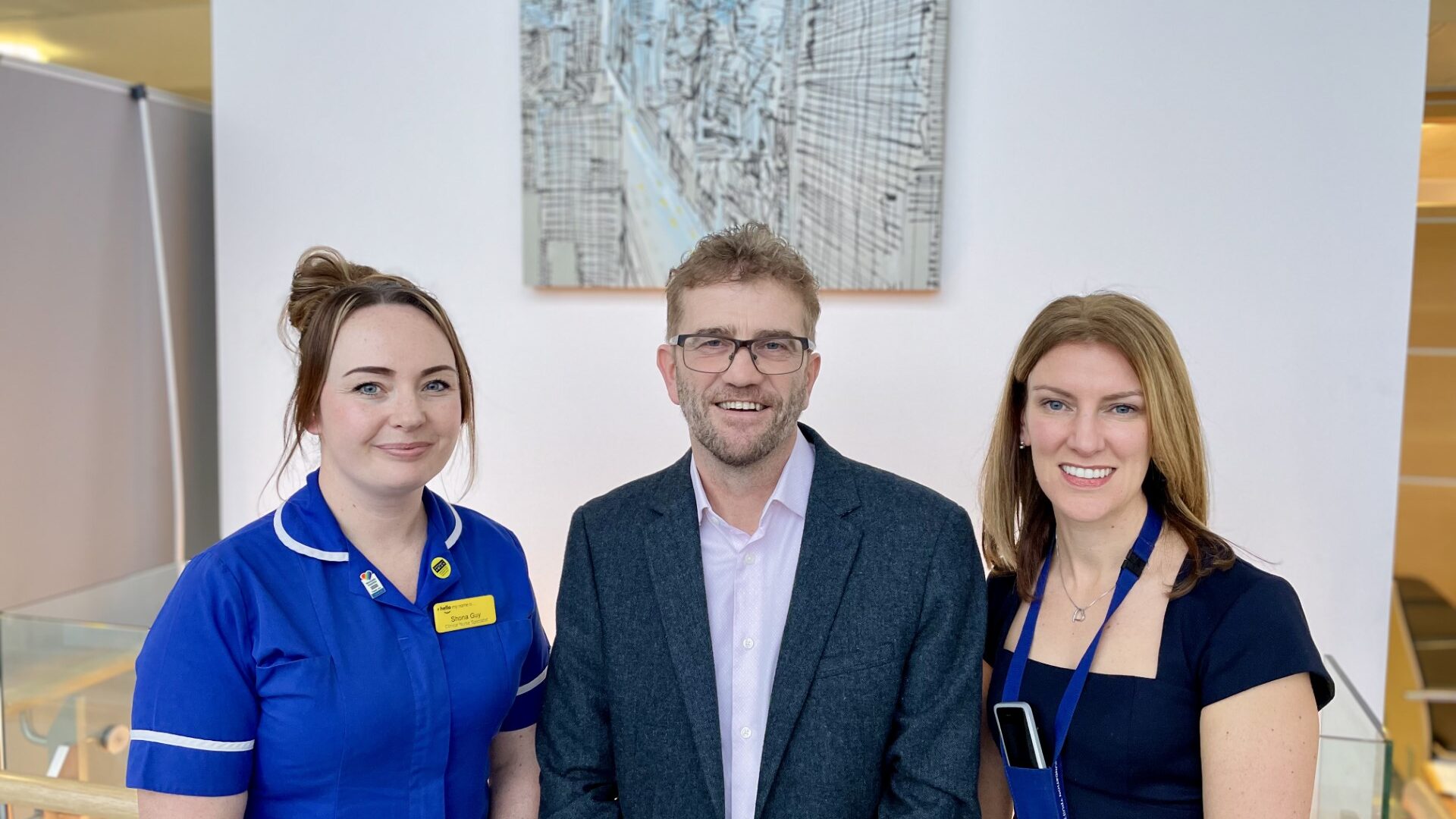Professor Nick Embleton has worked as a Consultant Neonatal Paediatrician for over 20 years at the RVI’s neonatal intensive care unit in Newcastle helping to save the lives of thousands of babies.
But in 2021 he became a patient himself after being diagnosed with a rare type of blood cancer called Myelodysplastic Syndrome (MDS) causing irreversible marrow failure.
His only hope was a bone marrow transplant to replace the cancerous blood cells with healthy ones from a donor. However, the body will automatically reject them unless they are a match.
A match could not be found in the UK so the search was extended worldwide. Thankfully a match was discovered and within eight months Nick had his transplant at the Freeman Hospital’s Northern Centre for Cancer Care under the expert care of consultant haematologist Dr Erin Hurst.

Anonymous stem-cell donation
Both donor and patient must remain anonymous until the transplant is known to have been successful. It was and two years later Nick told BBC News he wanted to track down and hopefully meet his donor.
Working with charities Anthony Nolan and DKMS, Nick’s donor Marius, aged 24 from Chemnitz near Dresden in Germany, who had joined the donor register in his late teens was identified.
He agreed to fly to the UK to meet Nick, at Maggie’s Newcastle – a cancer support centre opposite the very cancer centre where he had his life-saving transplant.
“The cancer cells have all gone” said Nick. “When they check my blood, all of those blood cells belong to you.
“I would be dead if it wasn’t for you.”
Watch Nick and Marius’s emotional meeting in this video.
